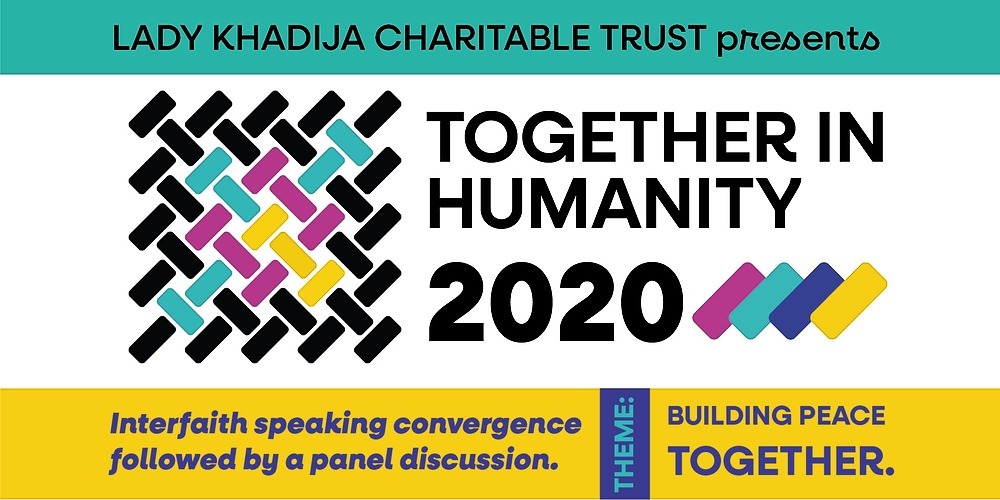Bahá’í teachings provide a formidable framework for fostering unity and cooperation among the diverse peoples of the world. Through an intricate tapestry of philosophical underpinnings, spiritual injunctions, and practical recommendations, these teachings aspire to establish a paradigm whereby humanity transcends the divisiveness that characterizes contemporary society. The principles of Bahá’í philosophy advocate for the oneness of humanity, a concept deeply embedded in its doctrinal foundation. This article will navigate through the multifaceted dimensions of Bahá’í teachings, presenting a whole new way to bring humanity together.
To begin with, the central tenet of Bahá’í belief encapsulates the oneness of humanity. This principle asserts that all humans are members of a single family, irrespective of race, nationality, or religion. The Bahá’í Faith posits that the fragmentation of society into disparate factions has detrimental effects on collective progress. Hence, it urges individuals to cultivate an understanding of our shared identity, fostering inclusivity and empathy. This idea beckons a recalibration of societal values, shifting focus from individualism to a sense of collective responsibility.
Next, the Bahá’í perspective on education emerges as a vital instrument for societal advancement. Bahá’u’lláh, the founder of the Bahá’í Faith, emphasized that education serves as the bedrock for personal and social development. In this regard, the teachings advocate for universal access to education as a means to eradicate ignorance—a perennial barrier to unity. By providing education that nurtures critical thinking, moral integrity, and altruistic service, individuals are better equipped to engage with the complexities of human relationships, thereby fostering understanding among diverse groups.
The concept of justice is another pivotal element in the Bahá’í teachings. Justice is viewed as an indispensable pillar for any society striving for peace and unity. Bahá’í teachings advocate for a system of justice that is equitable and transparent, wherein all individuals are treated with dignity. It emphasizes the importance of eliminating prejudice and discrimination, thus allowing for a flourishing environment conducive to the oneness of humanity. When justice prevails, the potential for harmony and collaboration increases exponentially.
Furthermore, the emphasis on consultation as a method of decision-making is transformative in fostering unity. The Bahá’í approach to consultation encourages open dialogue, respect for diverse perspectives, and a commitment to collective well-being. By prioritizing consensus over contention, individuals and communities can navigate conflicts more effectively, paving the way for enhanced collaboration. This practice cultivates an environment wherein differences are appreciated and utilized as a resource rather than a detriment.
In addition to these theoretical constructs, the Bahá’í Faith advocates for the establishment of community life that nurtures unity. Local and global Bahá’í communities engage in various activities that promote unity through service, consultation, and enrichment of social bonds. These gatherings serve not only as a means of deepening spiritual connection but also as platforms for addressing communal issues. Such endeavors reinforce the understanding that a collective approach to problem-solving is vital in addressing the challenges facing humanity today.
The role of religion in fostering unity can also not be overlooked. Bahá’í teachings advocate for the reconciliation of religious differences through the recognition of the essential oneness of all world religions. This perspective encourages individuals to approach religious diversity with respect and understanding, facilitating interfaith dialogue as a pathway to unity. The recognition that all religions stem from the same divine source can engender a sense of kinship among believers of different faiths, diminishing sectarian divides.
Moreover, the Bahá’í Faith underscores the significance of service to humanity as a vehicle for personal and societal transformation. Service is not merely an act of goodwill; it is a fundamental aspect of one’s spiritual practice. Engaging in service projects fosters connections among individuals and communities. When individuals dedicate their time and resources to uplifting others, they forge bonds of solidarity that transcends socio-economic and cultural barriers. In this sense, service acts as a catalyst for unity, allowing diverse individuals to come together under a shared purpose.
As we explore the Bahá’í teachings, the notion of global governance aimed at promoting peace and unity within the international community emerges as an essential aspect of its vision. Bahá’í writings articulate a call for the establishment of a World Commonwealth, where nations cooperate on an unprecedented scale to address global issues such as poverty, climate change, and conflict. This vision suggests that true unity can only be achieved when nations prioritize collaboration and mutual understanding over competition and discord. In the current global landscape, adopting a Bahá’í framework for governance can lead to practical solutions that embrace the interconnectedness of humanity.
In conclusion, Bahá’í teachings provide an abundance of transformative insights and practical strategies for bringing humanity together. The emphasis on the oneness of humanity, education as a catalyst for enlightenment, the pursuit of justice, the practice of consultation, and the commitment to service collectively illuminate a pathway towards unity. By recognizing and integrating these principles into everyday life, individuals and communities can contribute meaningfully to a holistic vision of peace and interconnectedness. The Bahá’í approach, laden with rich philosophical and ethical dimensions, invites every person to participate actively in the unfolding narrative of humanity’s shared destiny, thus offering a profound new way to bring the world together. Through unity, we find strength; through diversity, we discover richness; and through collaboration, we pave the road to a transcendent future.
